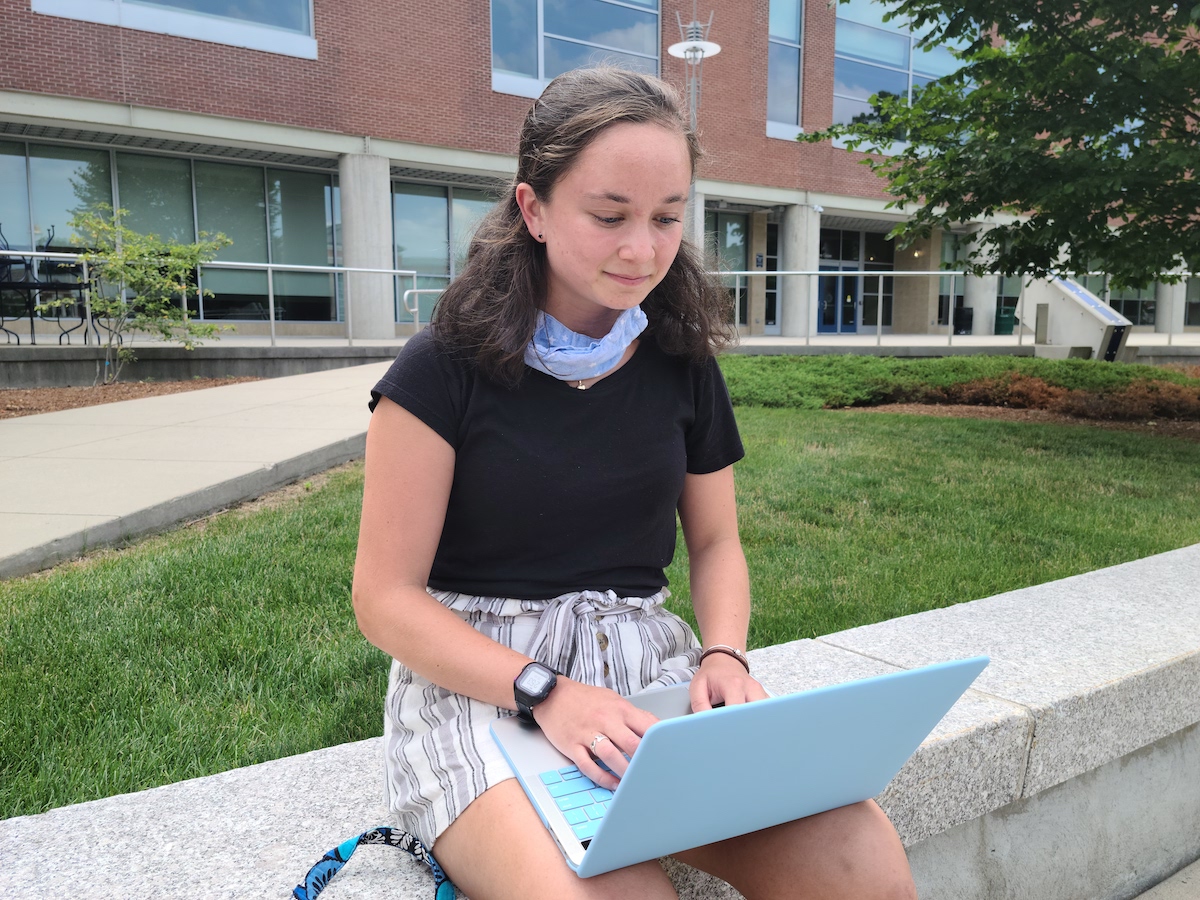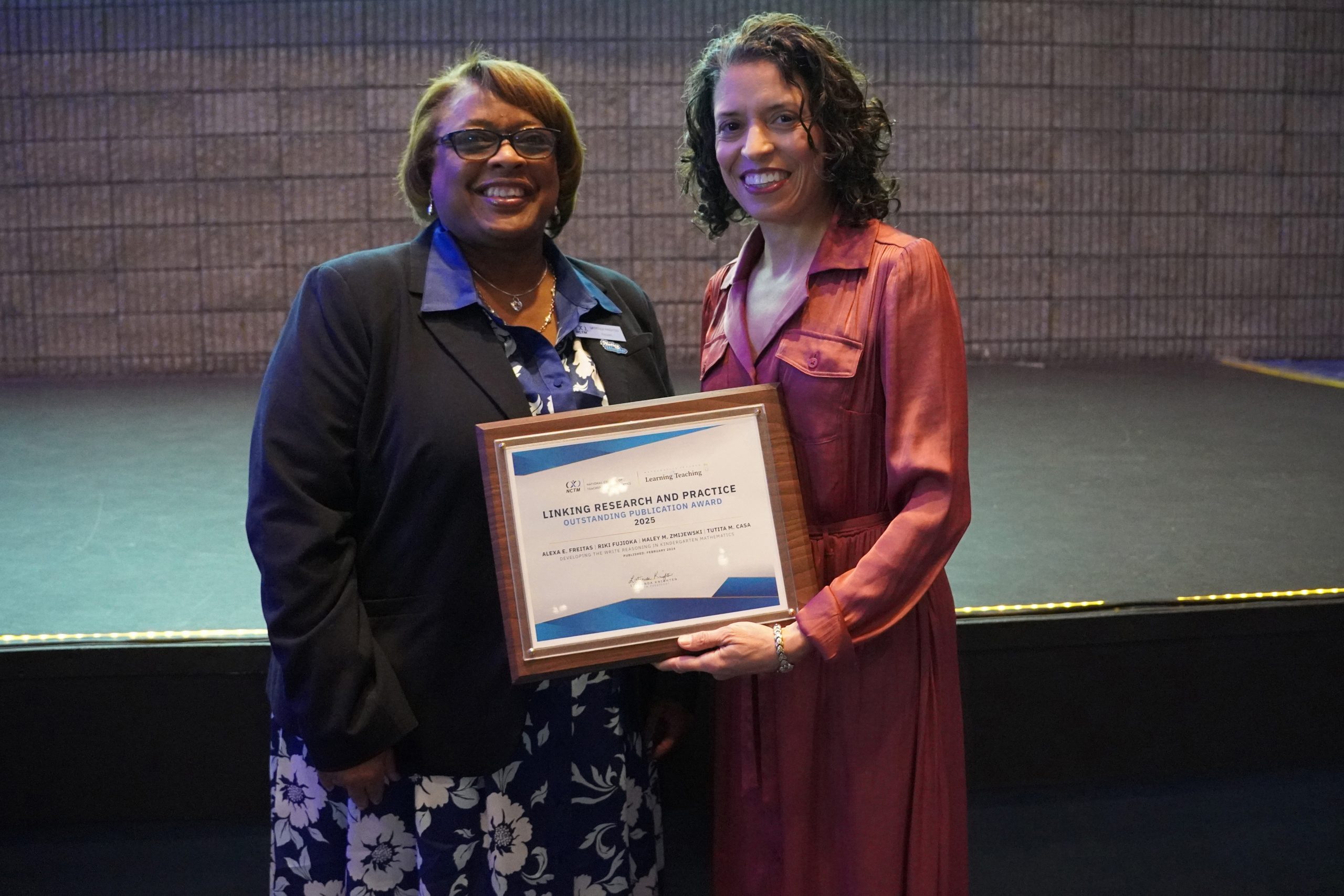UConn’s Office of Undergraduate Research each year provides Summer Undergraduate Research Fund (SURF) awards to support full-time undergraduate students in summer research or creative projects – an initiative that continues this year, despite the challenges presented by the COVID-19 pandemic.
SURF awards are available to students in all majors at all UConn campuses. The students’ project proposals are reviewed by a faculty committee representing various schools and colleges, and SURF award recipients are chosen through a competitive process. Each SURF award winner is supervised by a UConn faculty member.
This summer, UConn Today will take a look at various 2020 SURF scholars and their work.
Name: Emma Burleigh
Hometown: Hingham, Mass.
Year: Rising Senior
Major: Physiology and Neurobiology
Summer research project: Investigation of the behavioral role of neurons projecting to the lateral hypothalamic area of the brain. She is working with mentor Dr. Alexander Jackson, assistant professor of physiology and neurobiology.
What is your summer research focused on?
In our lab as a whole, we are investigating neurocircuits, particularly involving the lateral hypothalamic area of the brain and the anatomical connections, as well as the behavioral outputs. My project, in particular, is looking at a specific sub-population of neurons believed to be associated with behaviors of stress and anxiety. Previous work by the lab has laid the groundwork anatomically for the neurocircuit involved, and my project uses a virus to activate this neurocircuit and then we run different behavioral affects comparing controlled and activated neurocircuit mice to be able to get a behavioral phenotype of stress and anxiety for this neurocircuit.
What is the real-life application of work like this?
The research creates a better understanding of the neuro network for psychiatric disorders such an anxiety, PTSD, and depression. Hopefully, it will give us a better understanding and a better way to potentially treat it and target it at a more direct level.
How has COVID-19 affected your research?
Undergraduates have limited access to the labs right now, so we really can’t do in-person experimentation for the time being. That being said, my project shifted from being in the lab running experiments this summer to doing more of a literature review and looking at protocols that are out there for the stress and behavioral tests we are running. I am comparing and critiquing them and examining what others are doing, but looking at the way we are experimenting, because we believe our way will give us more accurate results. It is an article critique of the protocols we are running.
It is definitely different than what I intended to do, but it will give me a foundation for my upcoming senior thesis as well as other papers for the lab. I am definitely still being productive.
How is doing undergraduate research different from classroom work?
You are collaborating with a professor and graduate students rather than just learning from them. I personally did not get involved in research until I came to college, so it is a totally new learning experience. It has enhanced my knowledge and scientific ability greatly and it is something I would truly recommend for everyone to try at some point in their college career. You can see the results and progress of your work. It gives you the ability to explore questions that you have, and things you are curious about.
What are your future plans?
My plan is to attend medical school. I will be taking a gap year between undergraduate and medical school. I have a few different ideas of paths I want to go down. I definitely want to work with kids as a pediatrician, a psychiatrist, or as a genetic specialist, which would probably involve some research – and I have a strong foundation of that from working in this lab. Working in this lab honestly gives me the confidence in my ability and knowledge to pursue something like medical school.



